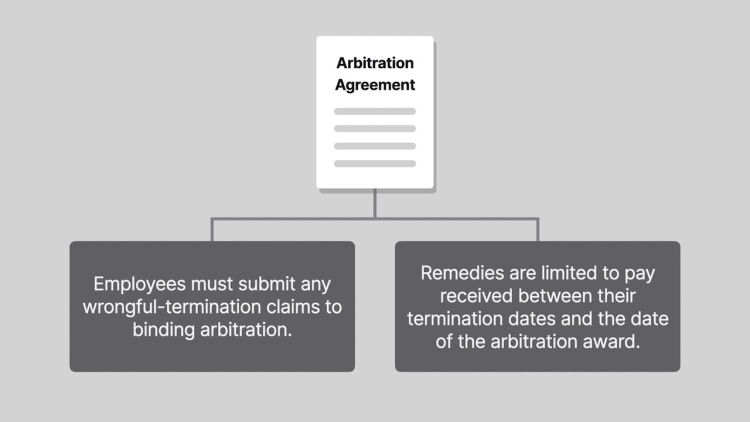Armendariz v. Foundation Health Psychcare Services, Inc.
California Supreme Court
24 Cal. 4th 83, 99 Cal. Rptr.2d 745, 6 P.3d 669 (2000)

- Written by Christine Hilgeman, JD
Facts
Marybeth Armendariz and Dolores Olague-Rodgers (Armendariz/Rodgers) (plaintiffs) were hired by Foundation Health Psychcare Services, Inc. (Foundation) (defendant). Armendariz/Rodgers signed employment application forms that contained an arbitration clause which related to future wrongful termination claims. Subsequently, they signed separate employment arbitration agreements which contained the same arbitration clause. The arbitration clause provided that Armendariz/Rodgers were compelled to arbitrate any claim they might make for wrongful termination of employment and further provided that should they be successful on a claim that their damages were limited to loss of earnings for the period from discharge to the arbitration award. A year later Armendariz/Rodgers' employment was terminated. They claimed that during their year-long employment they were subjected to sexual harassment and discrimination by their supervisors and co-workers. Armendariz/Rodgers sued for violations of the California Fair Employment and Housing Act (FEHA) on the ground of wrongful termination. Foundation then sought to compel arbitration. The trial court ruled that the arbitration clause was unconscionable and that since its unfairness permeated the entire arbitration agreement, the entire agreement was invalid. Although the California Court of Appeals held that the damages provision was unconscionable, it also held that is was severable and permitted enforcement of the rest of the arbitration agreement. Foundation appealed.
Rule of Law
Issue
Holding and Reasoning (Mosk, J.)
What to do next…
Here's why 907,000 law students have relied on our case briefs:
- Written by law professors and practitioners, not other law students. 47,100 briefs, keyed to 996 casebooks. Top-notch customer support.
- The right amount of information, includes the facts, issues, rule of law, holding and reasoning, and any concurrences and dissents.
- Access in your classes, works on your mobile and tablet. Massive library of related video lessons and high quality multiple-choice questions.
- Easy to use, uniform format for every case brief. Written in plain English, not in legalese. Our briefs summarize and simplify; they don’t just repeat the court’s language.





